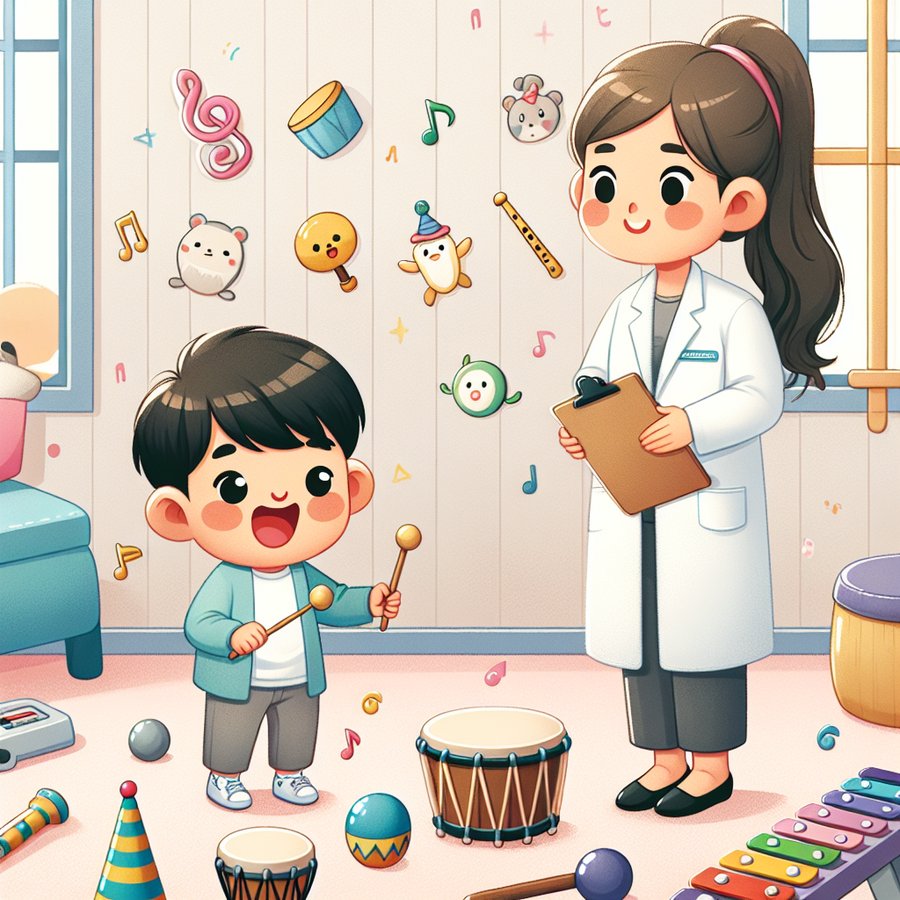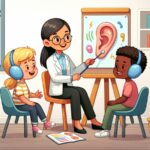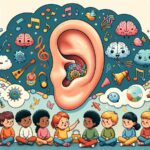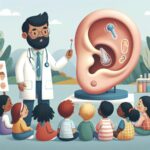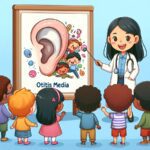Hearing tests are a crucial aspect of ensuring the auditory health of your baby. From the moment your child enters the world, doctors begin to assess their ability to hear, as it plays a vital role in their overall development and ability to communicate. This comprehensive guide is designed to walk new parents through the importance of hearing tests, the different types available, and how to prepare for them.
What are Hearing Tests for Babies?
Hearing tests for babies are specialized assessments conducted to evaluate the auditory function of infants. These tests are crucial for identifying any hearing impairments early on, which is essential for the effective management and treatment of potential hearing loss. The American Academy of Pediatrics recommends that all newborns undergo a hearing screening before leaving the hospital. If your baby was not tested at birth, or if you have concerns about their hearing, it’s important to schedule a hearing test as soon as possible.
There are several types of hearing tests designed specifically for babies. These include the otoacoustic emissions (OAE) test and the auditory brainstem response (ABR) test. The OAE test measures sound waves produced in the inner ear, while the ABR test evaluates how the auditory nerve and brainstem respond to sound. Both tests are non-invasive, painless, and can be conducted while your baby sleeps.
Why are Hearing Tests Important?
Hearing tests are vital because they can detect hearing loss at an early stage, which is critical for your baby’s speech and language development. Early identification and intervention can significantly improve outcomes for children with hearing impairments. According to the Centers for Disease Control and Prevention (CDC), early intervention services can help children with hearing loss develop communication and language skills comparable to their hearing peers.
Without early detection and intervention, children with undiagnosed hearing loss may experience delays in speech, language, and cognitive development. This can impact their academic performance and social interactions later in life. Therefore, ensuring your baby undergoes hearing tests is a step toward safeguarding their development and well-being.
How to Prepare for Your Baby’s Hearing Test
Preparing for your baby’s hearing test is straightforward. Since most hearing tests for babies are conducted while they are asleep, try to schedule the test when your baby is likely to be sleepy. Feeding your baby and ensuring they are comfortable before the test can also help them sleep through the procedure. Bring along a favorite blanket or toy to help soothe your baby if necessary.
It’s also helpful to gather any medical records or information regarding your family’s history of hearing loss to share with the audiologist. This information can provide valuable insights into potential hereditary conditions that may affect your baby’s hearing. Additionally, jot down any questions or concerns you may have to discuss with the healthcare provider during the visit.
Types of Hearing Tests for Babies
As mentioned earlier, the two primary hearing tests for babies are the Otoacoustic Emissions (OAE) test and the Auditory Brainstem Response (ABR) test. Both tests are essential tools in assessing the hearing of infants and are selected based on the age of the child and specific circumstances.
The OAE test involves placing a small earphone and microphone in the baby’s ear and playing sounds. If the cochlea (inner ear) is functioning correctly, it will produce an echo that is picked up by the microphone. The ABR test involves attaching electrodes to the baby’s head to measure the brain’s response to sound. Both tests are effective in identifying hearing loss and are instrumental in developing an appropriate intervention plan.
For further reading on the importance of detecting and addressing hearing loss early, consider visiting the World Health Organization’s fact sheet on deafness and hearing loss.
What to Do if Your Child Has a Hearing Impairment
Discovering that your child has a hearing impairment can be overwhelming, but it’s important to remember that there are many resources and interventions available to support you and your child. The first step is to consult with an audiologist or ENT specialist to discuss the extent of the hearing loss and explore treatment options. This might include hearing aids, cochlear implants, or other assistive listening devices.
Additionally, early intervention programs can provide speech therapy and other services to help your child develop communication skills. Engaging with support groups and organizations dedicated to hearing loss can also offer valuable advice and emotional support during this time.
In conclusion, hearing tests for babies are a critical step in ensuring your child’s healthy development. By understanding the types of tests available, their importance, and how to prepare for them, you can take proactive steps toward safeguarding your baby’s auditory health. Remember, early detection and intervention can make a significant difference in your child’s ability to communicate and interact with the world around them.

